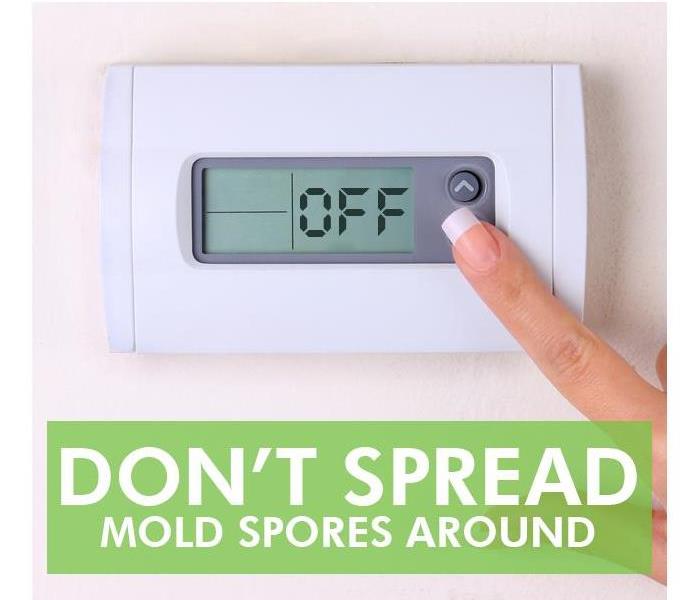Mold Containment: What You Should Know
3/6/2019 (Permalink)
3 Things You Should Know About Mold Containment
Have you been dealing with mold contamination at your Liberty, MO, home? If so, you probably have many questions regarding the mold remediation process. Your local restoration technicians can take many steps to restore your property. One of the most important of these is mold containment. Here are three things you should know about this vital process.
1. Containment Stops the Spread of Mold
Why is containment so important? As it turns out, mold spores can spread fairly quickly when they are present. This means that surfaces in your home that are currently unaffected by mold could be damaged without swift action - which is why cleanup professionals quickly take thorough containment steps as part of their mold contamination processes.
2. Air Systems Must Be Turned Off
This is one of the most important steps to take when attempting to prevent mold migration. Air conditioners, heating systems and even fans must be shut down when mold is present, as spores can travel through air and damage other sections of your home that may not be anywhere near the source of mold. If you can, turn off all of your HVAC devices and fans before cleanup crews arrive to quickly reduce the likelihood of extensive mold damage.
3. Different Cleanup Methods Can Be Used
There are a few methods that cleanup professionals may use for mold containment. These can include the use of negative air pressure to halt the spread of mold and negative air chambers to physically isolate any growth. Keep in mind that these are advanced procedures, and your particular situation may warrant other solutions.
If you have any questions about mold contamination or cleanup during the restoration process, do not hesitate to ask your on-site residential remediation professionals. They should have experience dealing with such matters and know how to respond to even some of your most difficult mold-related concerns.



 24/7 Emergency Service
24/7 Emergency Service
